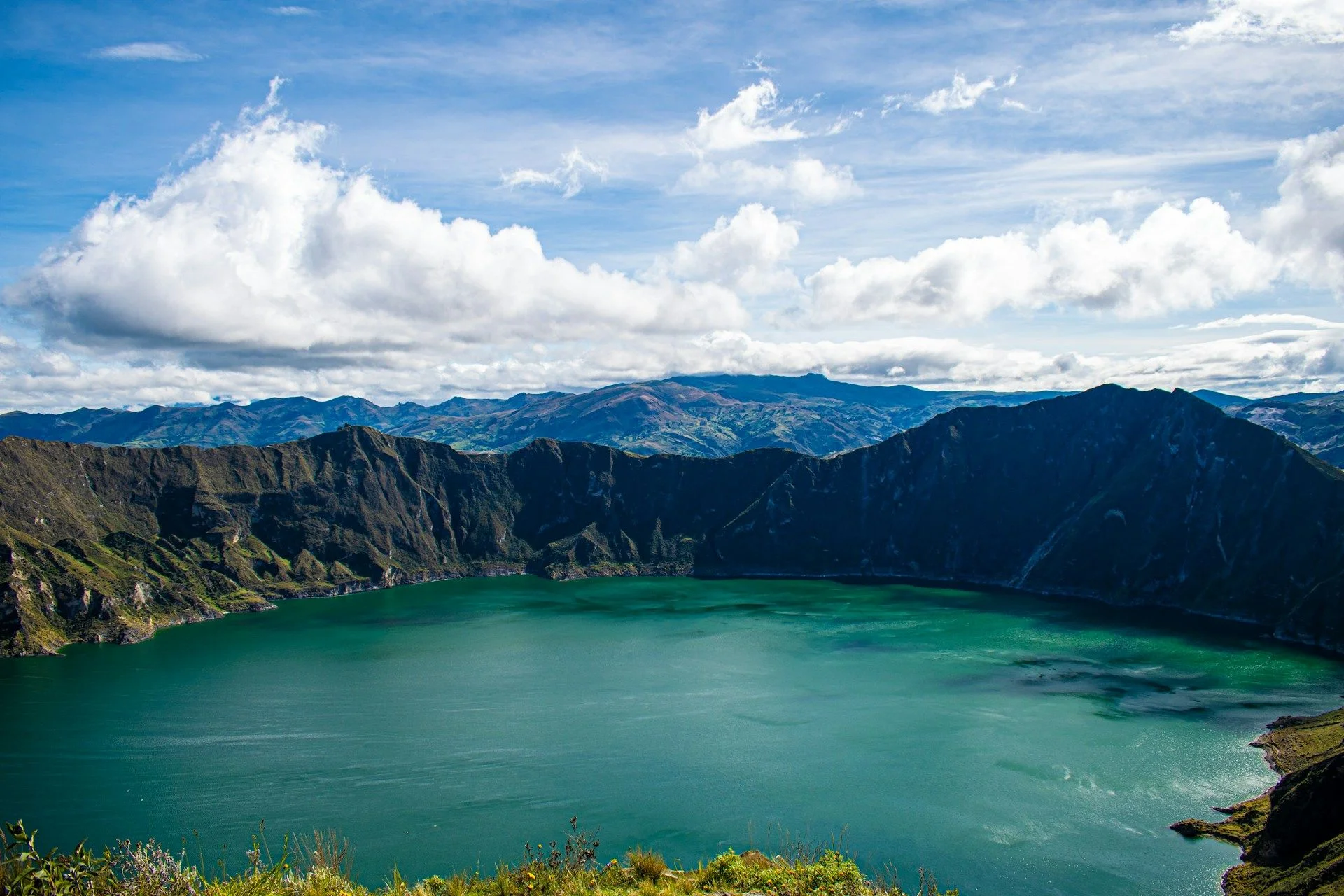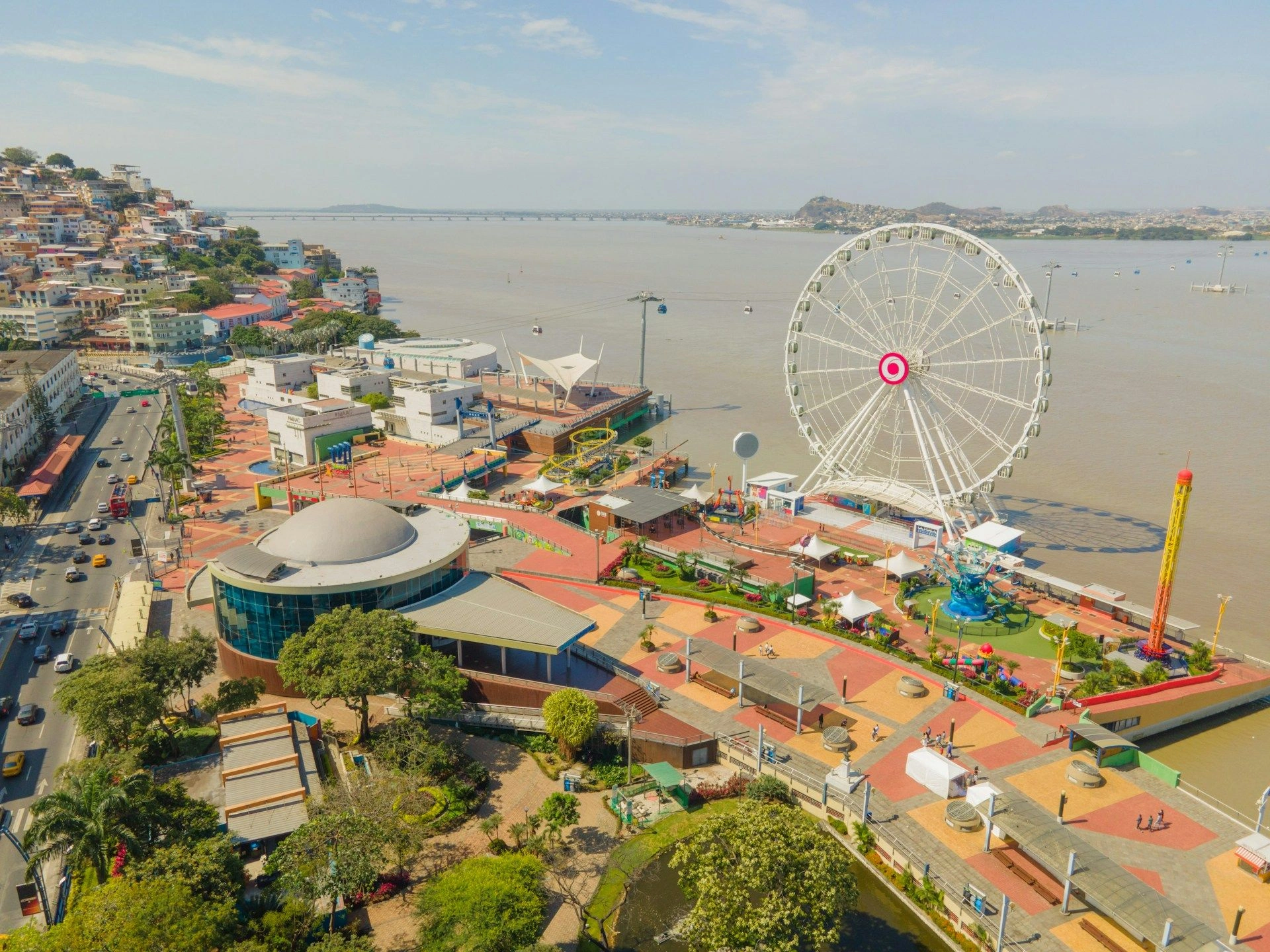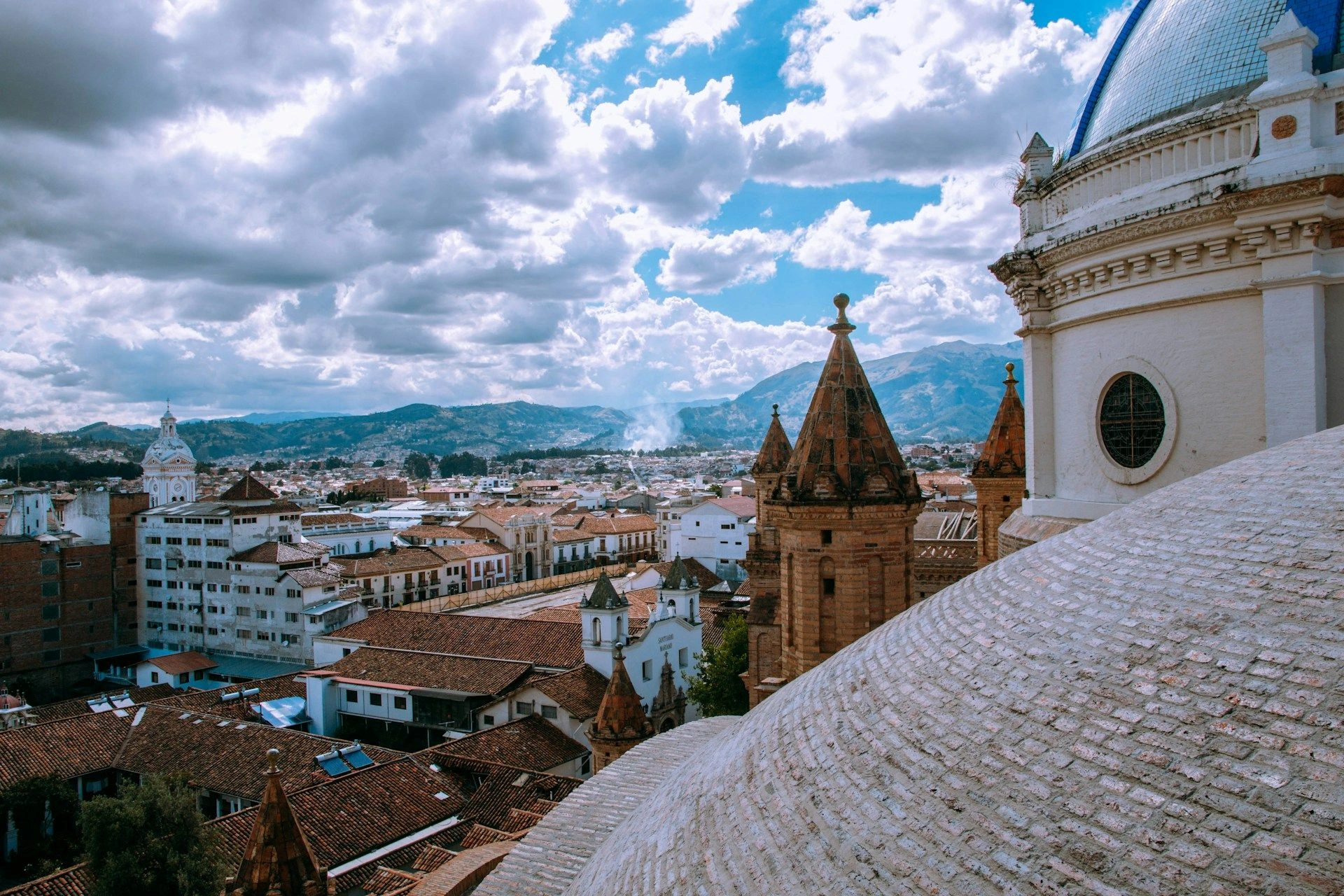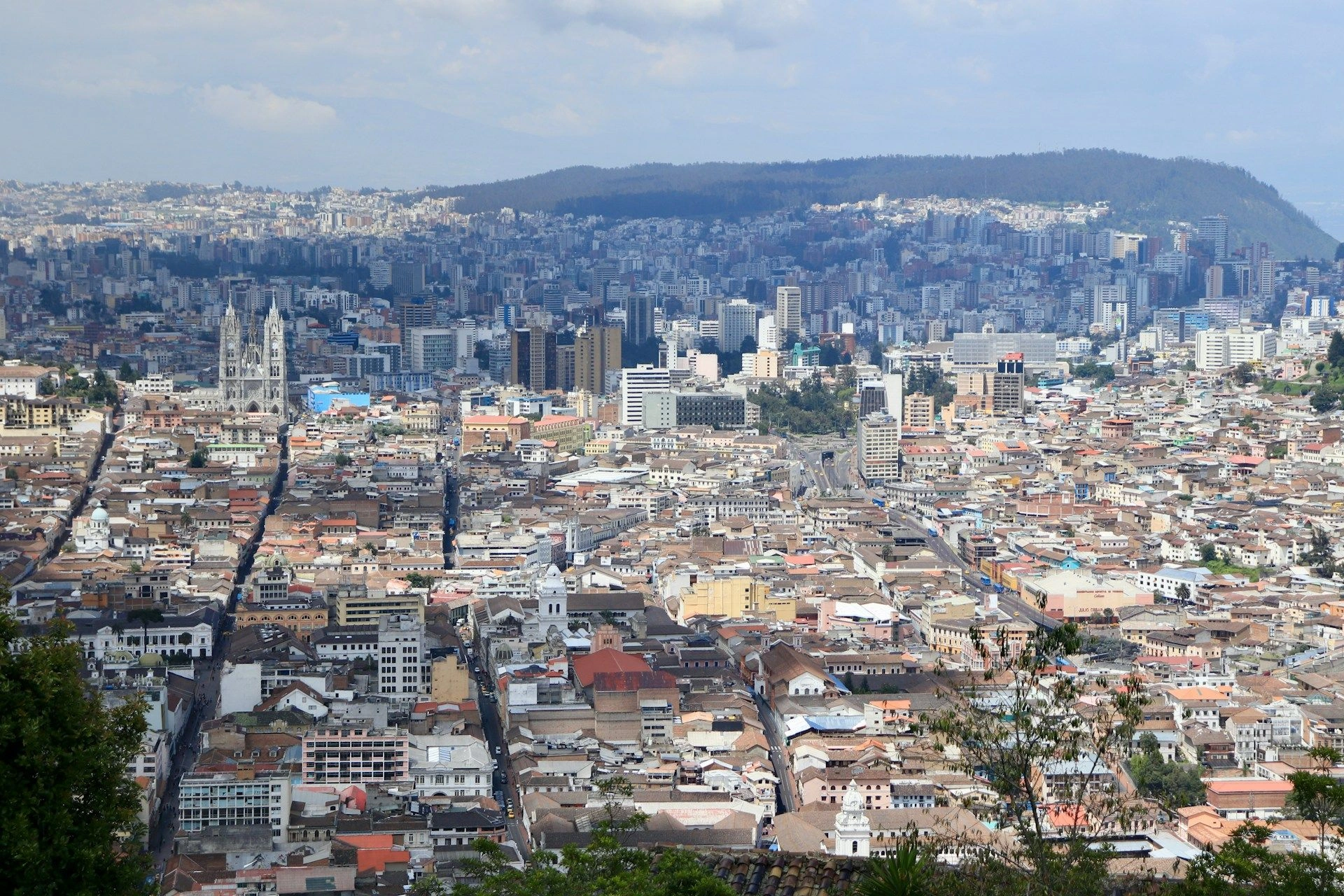Ecuador Investment Property ListingsReal estate across rivershills and plazas

Best offers
in Ecuador
Benefits of investment in
Ecuador real estate
Beachfront living with low entry costs
Coastal towns like Salinas and Manta offer ocean views, developed infrastructure, and real estate from $40,000.
Residency linked to property investment
A $42,500 property purchase opens the path to permanent residency and a tax-friendly regime.
Undervalued market with stable demand
Domestic buyers and retirees keep up demand in both coastal and Andean regions — with room for price growth.
Beachfront living with low entry costs
Coastal towns like Salinas and Manta offer ocean views, developed infrastructure, and real estate from $40,000.
Residency linked to property investment
A $42,500 property purchase opens the path to permanent residency and a tax-friendly regime.
Undervalued market with stable demand
Domestic buyers and retirees keep up demand in both coastal and Andean regions — with room for price growth.

Useful articles
and recommendations from experts
Investing in Real Estate in Ecuador: Coastal Value and Highland Stability
Why Ecuador Is on the Radar for Global Property Investors
Ecuador offers one of Latin America’s most accessible and affordable real estate markets. From the colonial charm of Cuenca to the beach towns of the Pacific coast and the business districts of Quito, the country presents a broad spectrum of investment opportunities. Its appeal lies in full property rights for foreigners, low cost of living, and a diversity of climates across a compact geography. With stable ownership laws, tax efficiency, and improving infrastructure, Ecuador is attracting retirees, digital nomads, and global investors alike.
Types of Property and Use Permissions
Foreign buyers can invest in various property types across Ecuador, including:
- Urban Condominiums: Popular in Quito, Cuenca, and Guayaquil, these properties are sought after by professionals and expats.
- Detached Homes and Villas: Available in suburban areas or smaller towns like Loja or Vilcabamba, and along the coast.
- Beachfront Lots: Land for building homes or tourism facilities in Salinas, Olón, or Manta.
- Rural Land: Available for farming, eco-tourism, or private residential projects. Zoning laws apply.
- Commercial Properties: Retail units, small hotels, hostels, and mixed-use buildings in cities or resort zones.
There are no nationality-based restrictions on what foreigners can purchase. Building permits and usage designations are managed by municipal governments, and developers must comply with zoning and environmental standards.
Ownership and Legal Regime
Ecuador allows 100% freehold property ownership for both nationals and foreigners. Key legal aspects include:
- Freehold Title: Foreigners enjoy the same rights as Ecuadorian citizens.
- Public Registry: All transactions must be notarized and registered with the municipal property registry to confirm ownership.
- No Residency Requirement: Investors can buy property without living in the country or holding a visa.
- Inheritance Rules: Local laws prioritize direct family inheritance; foreigners may consider wills or trusts for asset control.
Due diligence is critical. Buyers should engage a local real estate attorney to verify clean title, absence of debts, and proper boundaries (especially in coastal and rural plots).
Prices, Liquidity, and Growth Potential
Ecuador offers some of the lowest price-per-square-meter rates in Latin America, especially compared to its neighbors Peru and Colombia. Market trends vary by region:
| Location | Property Type | Price Range (USD per m²) |
|---|---|---|
| Quito (La Carolina, Cumbayá) | Urban Apartment | $1,200 – $2,200 |
| Cuenca (Centro Histórico) | Colonial Home | $700 – $1,200 |
| Salinas / Manta | Beach Condo | $900 – $1,500 |
| Vilcabamba / Loja | Country Home | $400 – $900 |
| Coastal Raw Land | Unbuilt Lots | $10 – $60 per m² |
Property prices are relatively stable and have appreciated modestly (2%–5% annually) over the past five years. Liquidity is strongest in Quito and Cuenca, while coastal regions depend on tourism cycles and expat demand.
Taxes and Transaction Costs
- Property Transfer Tax: 1% of declared value, typically paid by the buyer.
- Registration and Notary Fees: Approximately 0.5%–1.5% of the transaction value.
- Annual Property Tax: Based on the municipal value; typically 0.1%–0.3% per year.
- Capital Gains Tax: Applies to profit on resale; a progressive rate that can be minimized if the property is held for over five years or declared as a primary residence.
- Rental Income Tax: Taxed at 8%–22% depending on the amount; deductions allowed for expenses.
All taxes are payable in USD, Ecuador’s official currency, which eliminates currency risk. The tax system is relatively transparent and simplified for small investors.
Investment Scenarios
- Beachfront Airbnb Rental: A two-bedroom condo in Salinas ($120,000) earns $900/month during high season; annual yield of ~8% with part-time personal use.
- Colonial Home in Cuenca: Restored three-bedroom house ($180,000) leased to expats for $1,100/month = 7% yield with low vacancy.
- Eco-Farm in Loja Province: 5 hectares for $60,000 used for permaculture and guest cabins; retreat earns $25,000/year gross after development.
- Urban Office in Quito: Commercial unit in La Carolina rented to tech startup at $1,500/month on $200,000 investment.
Locations and Infrastructure
Ecuador’s real estate potential is enhanced by diverse climates and improving transport links:
- Quito: Capital city with stable property values, modern shopping centers, and business districts. Direct flights to the U.S., Europe, and regional capitals.
- Cuenca: UNESCO-listed colonial city with strong appeal to retirees and cultural tourists. Efficient local infrastructure and walkable core.
- Manta / Salinas: Fast-developing beach zones, with new roads and port expansions boosting demand.
- Loja / Vilcabamba: Known for health retreats and organic living; attract long-stay travelers and alternative lifestyle buyers.
- Galápagos (with restrictions): Highly regulated, but small eco-lodge or residential projects are possible with special permits.
Internet coverage and healthcare are good in major cities and acceptable in smaller towns. Roads and public transport are improving, especially along the coast.
Residency and Legal Pathways via Property
Buying property can help support a visa application. Notably:
- Investor Visa: Requires proof of $42,500+ investment in real estate or business assets; grants temporary residency renewable every 2 years.
- Retiree Visa: Based on fixed foreign income, not property, but many retirees use home ownership to satisfy accommodation requirements.
- Permanent Residency: After 21 months of temporary stay, applicants can transition to permanent status.
Residency allows foreign investors to open bank accounts, register vehicles, and access public services. Ecuador does not require property ownership for residency but treats it as a legitimate investment asset class.
Conclusion: Affordable Entry, Full Ownership, and Strong Potential
Ecuador offers a compelling package for international buyers: low entry costs, full property rights, minimal bureaucracy, and geographic diversity. Investors can find rental yields in the 6%–9% range and long-term appreciation in key cities and beach zones. With U.S. dollar pricing, affordable taxes, and a growing expat community, Ecuador is increasingly seen as one of Latin America's best-kept secrets for property investment.
Whether seeking a lifestyle home, rental income, agricultural project, or eco-tourism opportunity, Ecuador delivers accessibility, legal safety, and lifestyle rewards in equal measure.



